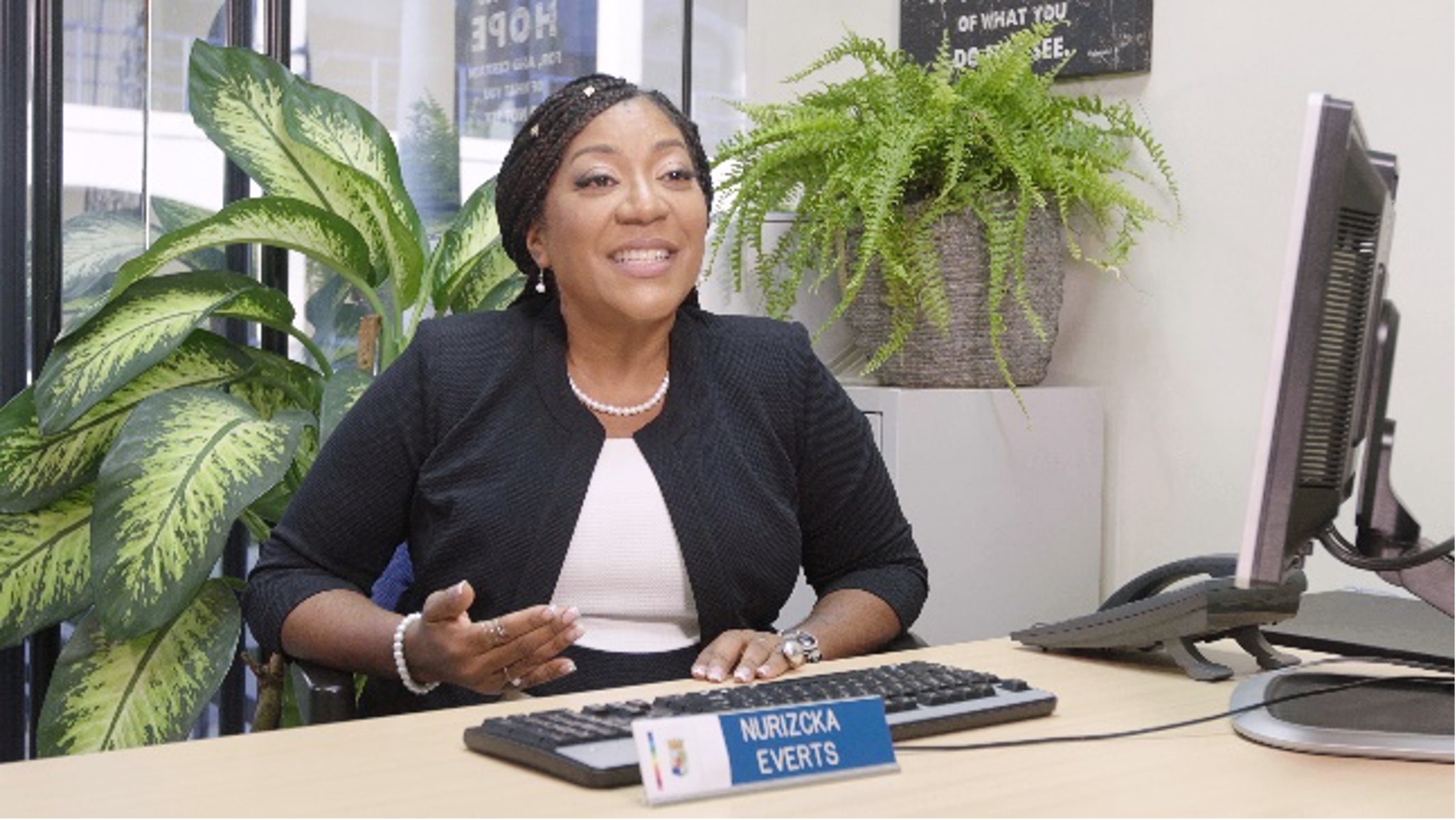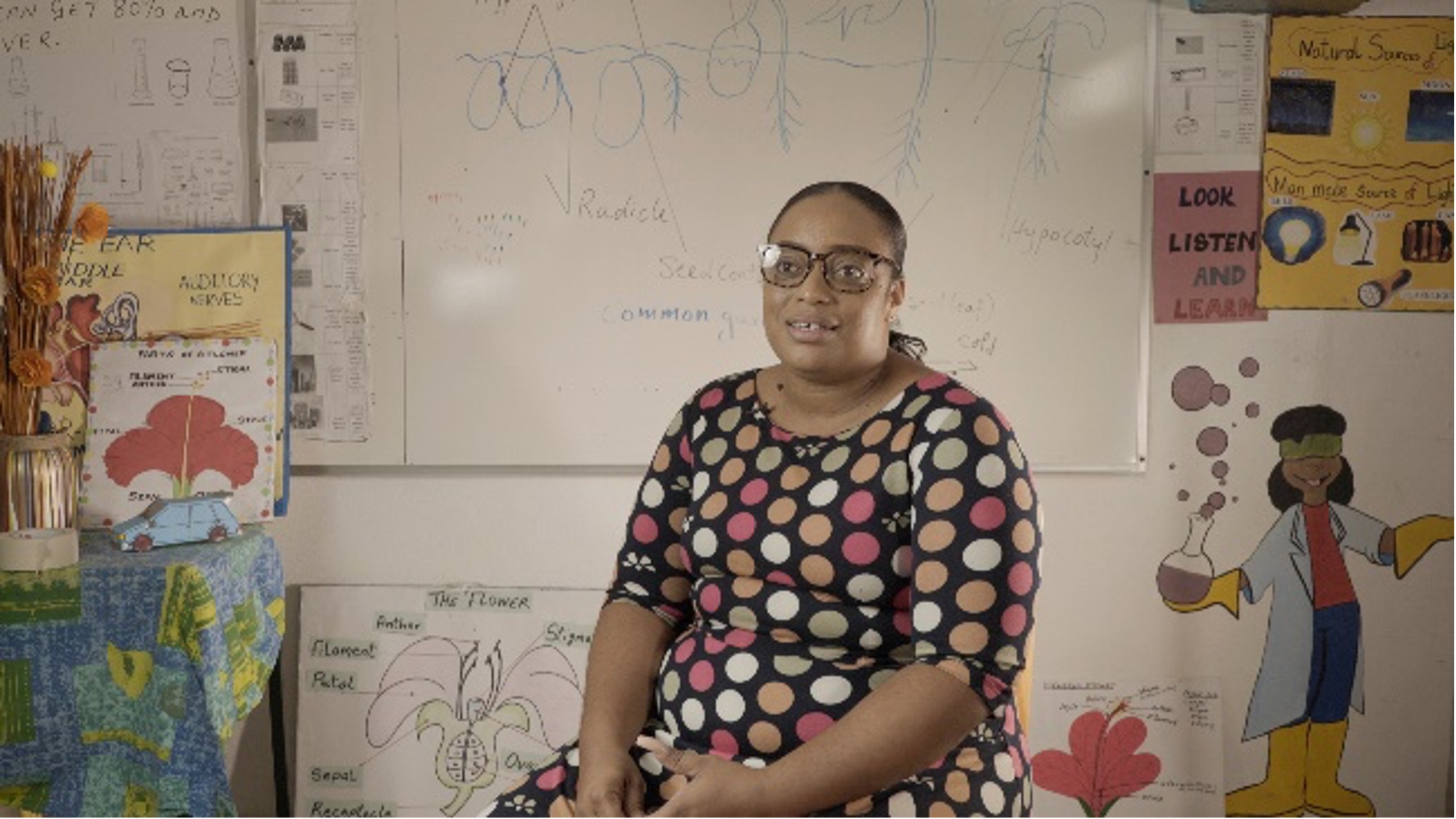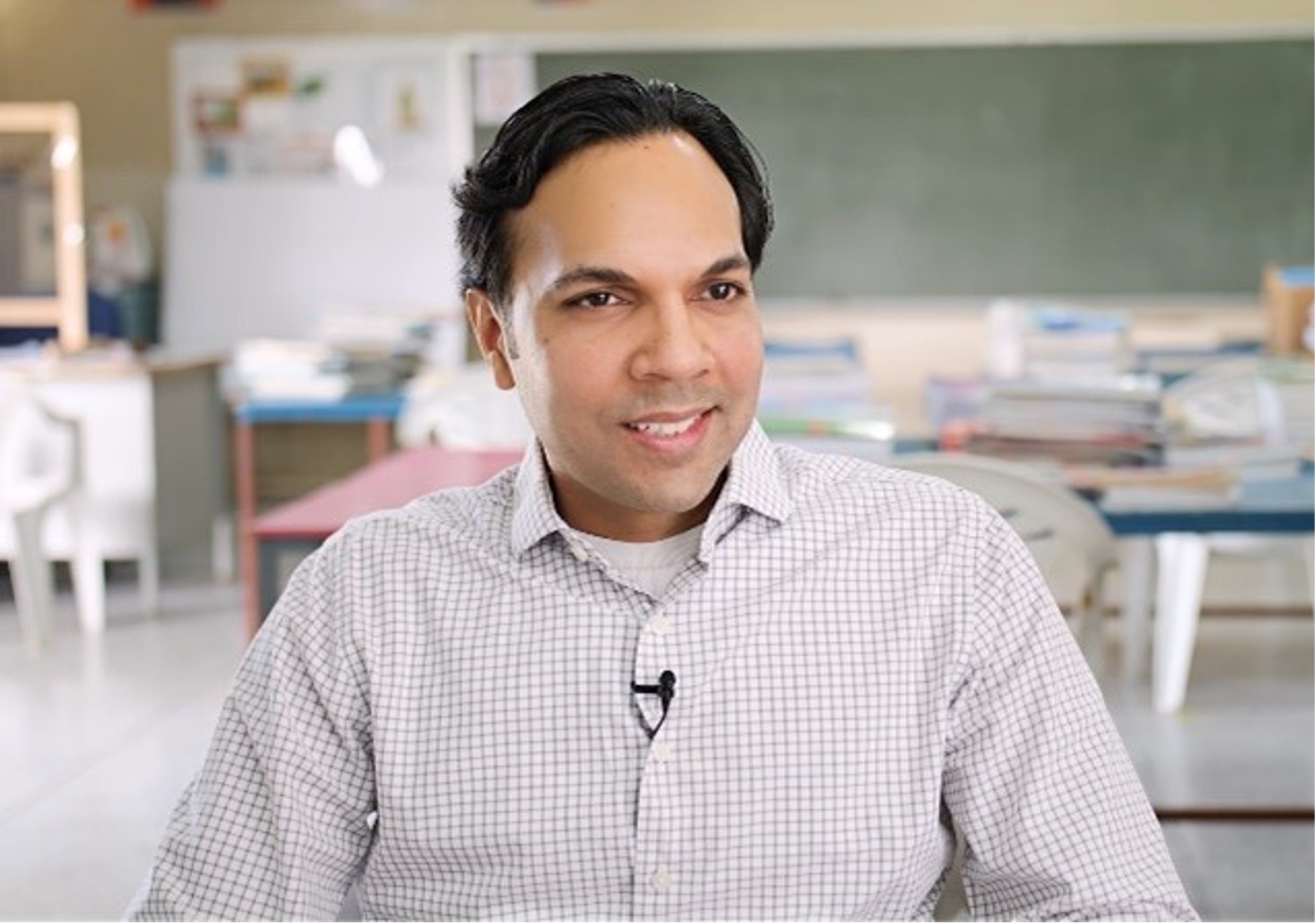 Distance Learning and Teacher Training Strategies in the Caribbean SIDS
Strengthening digital competencies of teachers in Caribbean SIDS toward improved quality education for all
Distance Learning and Teacher Training Strategies in the Caribbean SIDS
Strengthening digital competencies of teachers in Caribbean SIDS toward improved quality education for all

Challenges
The COVID-19 pandemic has profoundly impacted education systems globally, including in low-resourced countries, many of which are Small Island Developing States (SIDS) that have their own specificities and face more complicated challenges be they political, socio-economic or technological inequities. Similarly, countries in Latin America and the Caribbean experienced severe learning disruptions, as 83 per cent of the region’s children were out of school due to school closures in March/April 2020. Additionally, at the height of the pandemic, an estimated 91,710 teachers were also affected by COVID-19 in the Caribbean SIDS, lacking the required competencies, infrastructure and resources to contribute to learning continuity, thereby exacerbating prevailing learning inequalities. The pandemic also widened some of the existing gaps in the education system, resulting in a concerted request by Ministries of Education (MoE) to strengthen teacher digital competencies to mitigate concerns of wide-scale learning loss.
Towards a Solution
The United Nations Educational, Scientific and Cultural Organization (UNESCO) Cluster Office for the Caribbean has taken advanced actions to develop digital learning resources for teachers and students, and to design and implement the UNESCO Teacher Training Initiative, through the support of the Global Education Coalition partner, Blackboard Academy, and funding by the German Agency for International Cooperation (GIZ).
The UNESCO Teacher Training Initiative served to support Caribbean countries in mitigating potential learning losses and ensuring learning continuity and equity during the massive school closures. It focuses on the retooling and empowering of Caribbean teachers with strengthened competencies in content creation, management and online and distance learning (ODL) pedagogies and practices, in direct alignment with the Education 2030 Agenda and its target 4.C.1.
Informed by an in-depth regional consultative process, the programme was piloted in October 2020 with 31 master trainers engaged. It was further upscaled with a target of 40 master trainers to be trained and 10,000 teachers to be enrolled by the end of November 2021. This target was successfully met and well exceeded with the engagement of 51 master trainers and 12,440 teachers across the 20 Caribbean SIDS.
The programme was designed using an innovative cascading “trainthe-trainers” model, with inputs from stakeholders representing MoE and regional bodies to ensure contextualization and sustainability. Master trainers participated in a robust 4-week online teacher professional development course, informed by the UNESCO ICT Competency Framework. Following a validation process, the feedback received from teachers helped customize the programme to their diverse needs in the Caribbean context. The design resulted in the inclusion of concrete regional scenarios through synchronous and asynchronous modalities, allowing for adaptability and instant utility for the teacher-participants in their learning environment.
Central to the sustainability of the programme was the establishment of solid partnerships and collaborations with international and regional stakeholders, including the Blackboard Academy as the training provider under the Global Education Coalition (GEC) framework; the Caribbean Centre for Education Planning and the University of the West Indies, as the regional coordinating entity; and UNICEF Jamaica as a local donor supporting the increased engagement of Jamaican teachers. The International Task Force on Teachers for Education 2030 (TTF) supported the programme design through the establishment of a Caribbean Reference Group, providing a quality contribution.
Valuable lessons from the programme include: 1) the critical inputs provided by the multi-stakeholder partnership; 2) the utility of the cascade model in the engagement of Caribbean master trainers; 3) the adaptability of the course content and structure to address the diverse needs; and the value of strong alliances with the National Commissions for UNESCO and MoE, which was key to the programme.
Leveraging the achievements of the programme, GIZ has re-engaged UNESCO through its Office in Kingston for the co-design and piloting of the Caribbean Future Teacher Kit (FTK). This is a mobile-based digital professional development solution to engage teachers in a self-paced, peer-to-peer learning programme, undergirded by the convening of a regional community of practice. The co-design process was informed by the contribution of select Caribbean master trainers and teachers from the UNESCO Teacher Training Initiative in a design workshop, and the pilot was undertaken in February 2022, with 238 Jamaican teachers engaged.
Currently, plans are underway to upscale the FTK initiative across the 20 Caribbean SIDS. This will include South-South cooperation between the UNESCO Caribbean Office and the UNESCO Regional Office for Southern Africa in Zimbabwe, through a proposed scale-up of the FTK approach in Botswana. This initiative will allow for mutual exchange of lessons learned and will inform global capacity strengthening strategies for teacher training and professional development.
Contact Information
Countries involved
Supported by
Implementing Entities
Project Status
Project Period
URL of the practice
Primary SDG
Primary SDG Targets
Secondary SDGs
Secondary SDG Targets
Similar Solutions
| NAME OF SOLUTION | Countries | SDG | Project Status | |
|---|---|---|---|---|
Accelerator Labs Network Following collective intelligence methods to address emerging sustainability challenges and the growing demand for local solutions |
Antigua and Barbuda, Bahamas, Barbados, Belize, Dominica, Guyana, Jamaica, Saint Kitts and Nevis, Saint Lucia, Small Island Developing States, Suriname, Trinidad and Tobago | 08 - Decent Work and Economic Growth 13 - Climate Action | Ongoing | View Details |
Accessibility of Financial Services and the Private Sector in Africa Maximizing the impact of financial cooperation on economic development and industrialization in Africa |
Antigua and Barbuda, Bahamas, Barbados, Belize, Dominica, Guyana, Jamaica, Saint Kitts and Nevis, Saint Lucia, Small Island Developing States, Suriname, Trinidad and Tobago | 08 - Decent Work and Economic Growth | Completed | View Details |
Accessibility ToolKit Promoting accessibility as a cornerstone for inclusive digital development in Bangladesh. |
Antigua and Barbuda, Bahamas, Barbados, Belize, Dominica, Guyana, Jamaica, Saint Kitts and Nevis, Saint Lucia, Small Island Developing States, Suriname, Trinidad and Tobago | 08 - Decent Work and Economic Growth | Completed | View Details |
ACP Business-friendly Supporting business-friendly and inclusive national and regional policies, and strengthening productive capabilities and value chains |
Antigua and Barbuda, Bahamas, Barbados, Belize, Dominica, Guyana, Jamaica, Saint Kitts and Nevis, Saint Lucia, Small Island Developing States, Suriname, Trinidad and Tobago | 08 - Decent Work and Economic Growth 17 - Partnerships for the Goals | Ongoing | View Details |
Adaptation for Smallholder Agriculture Programme Establishing better working conditions for smallholder farmers through the use of good practices and new technologies |
Antigua and Barbuda, Bahamas, Barbados, Belize, Dominica, Guyana, Jamaica, Saint Kitts and Nevis, Saint Lucia, Small Island Developing States, Suriname, Trinidad and Tobago | 08 - Decent Work and Economic Growth 11 - Sustainable Cities and Communities 13 - Climate Action 15 - Life on Land | Ongoing | View Details |



